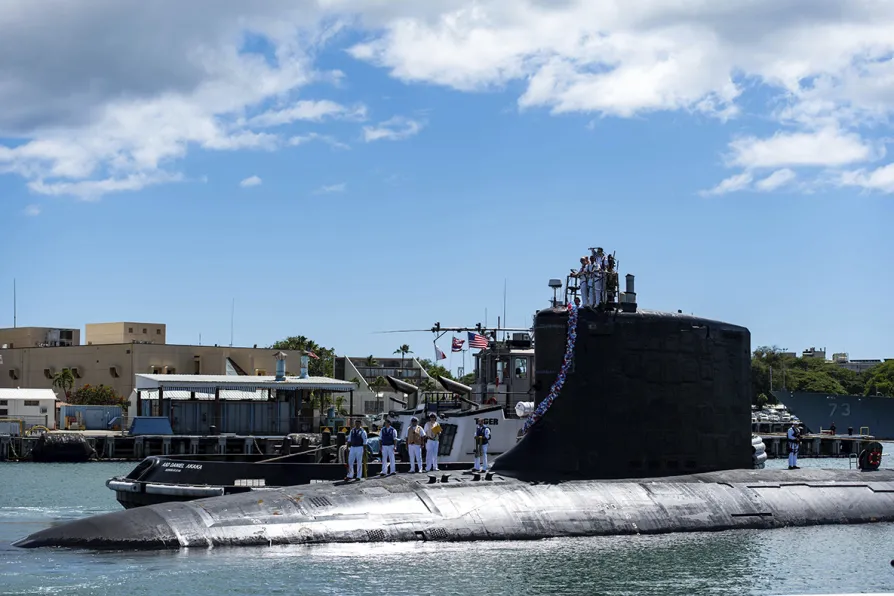
 A US Virginia-class fast-attack submarine, which the Australian government has recently invested in
A US Virginia-class fast-attack submarine, which the Australian government has recently invested in
BRITAIN’S peace movement condemned the government today over the “serious escalation” of the new cold war against China marked by the new “Aukus” pact.
Under the agreement, Britain, Australia and the United States will co-operate on the development of a fleet of nuclear-powered submarines for the Australian navy and on a range of other military projects in the Far East.
The move follows the US’s enrollment of India, Japan and Australia into a “quad” to contain China, whose economic and technological development is perceived as a threat to Washington’s global supremacy.

From 35,000 troops in Talisman Sabre war games to HMS Spey provocations in the Taiwan Strait, Labour continues Tory militarisation — all while claiming to uphold ‘one China’ diplomatic agreements from 1972, reports KENNY COYLE

In the first half of a two-part article, PETER MERTENS looks at how Nato’s €800 billion ‘Readiness 2030’ plan serves Washington’s pivot to the Pacific, forcing Europeans to dismantle social security and slash pensions to fund it












